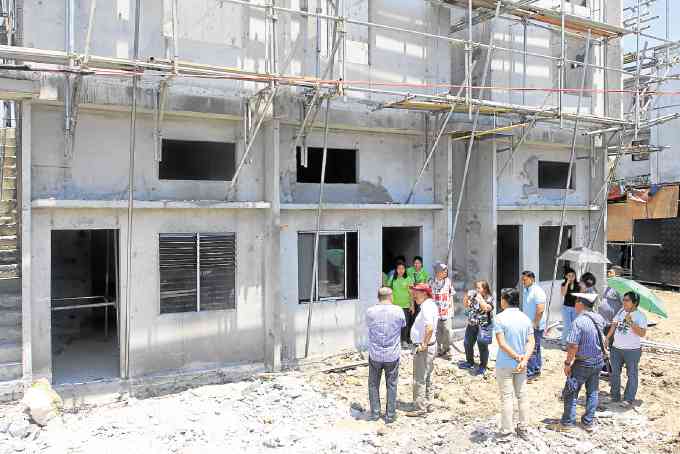Gov’t loans to help provide homes for informal settlers

This was after the board of the Social Housing Finance Corp. (SHFC), headed by Vice President Leni Robredo, approved loan applications worth about P272 million.
These loans, which were approved late last month, are being granted under SHFC’s Community Mortgage Program (CMP) and High Density Housing Program (HDH).
According to SHFC president Ma. Ana Oliveros, more than 60 percent of the loans under the Community Mortgage Program, worth P165.8 million, would be used for lot acquisition, while the remaining amount would be allocated for site development, and house construction in off-site projects for informal settler families relocating to a location of their choice.
Addressing backlog
Since its inception in 1988 up to September 2016, SHFC’s Community Mortgage Program alone has provided P13.04 billion worth of housing loans, which were able to assist 289,762 informal settler families located in 2,550 sites nationwide. The High Density Housing Program meanwhile has granted a total of P3.26 billion in loans from July 2013 to September 2016. The said amount has helped 18,125 families relocate in 31 projects sites in Metro Manila.
Article continues after this advertisementThese loans are expected to help the government to solve the socialized housing crisis with demand for such units are expected to swell to 5.7 million by the end of the year.
Article continues after this advertisementAddressing this massive backlog meant that at least 2,600 homes will have to be built every day over the next six years if the new administration intends to address the said housing crisis before President Duterte steps down from office.
In her earlier pronouncements, Robredo bared plans to create a more comprehensive roadmap to guide both the public and private sector; to conduct an inventory of government property that can be converted into mass housing; find the right model that can be patterned after the best practices of countries such as Hong Kong, Singapore and Thailand; streamline processes on both the supply and demand side; create a one-stop shop to expedite the processes involved; and provide tax breaks to make socialized housing an even more attractive venture for the local property developers.
Currently, the continued growth of the population, low incomes and the prohibitive costs of owning a home, scarcity of suitable land, and the general unattractiveness of engaging in the business of socialized housing have been among the major roadblocks that continue to hamper the capabilities of both the private and public sectors to address this socialized housing backlog.

The High Density Housing Program has granted a total of P3.26 billion in loans from July 2013 to September 2016.
Reforms
SHFC is the lead agency providing flexible, affordable, innovative, and responsive (FAIR) shelter financing and development solutions to underprivileged communities.
It has since been adopting policy reforms to further boost the implementation of housing finance programs for the informal settler families in line with the policy initiatives of Robredo.
One example of these reforms included the agreement that SHFC has forged with the Housing and Land Use Regulatory Board (HLURB) in August. This collaboration was aimed at streamlining the processes involved in the approval of housing applications for the marginalized communities. This commitment was expected to help speed up the processing and releasing of documents needed by various community associations applying for the housing loans under the Community Mortgage Program.
Based on the memorandum of understanding (MOU), the SHFC and the HLURB shall establish a joint one-stop shop and a common databank for faster verification and processing. The two agencies would have to identify priority projects and local government units where they can initially roll out the fast-tracking of housing applications.
Oliveros earlier said the streamlined process resulting from this government-to-government approach would help “unburden the community associations and enable the poor to obtain security of tenure at the soonest possible time.”
“Housing is essential to poverty reduction; hence, the faster they get their houses, the earlier they can lift themselves out of poverty,” Oliveros had said.